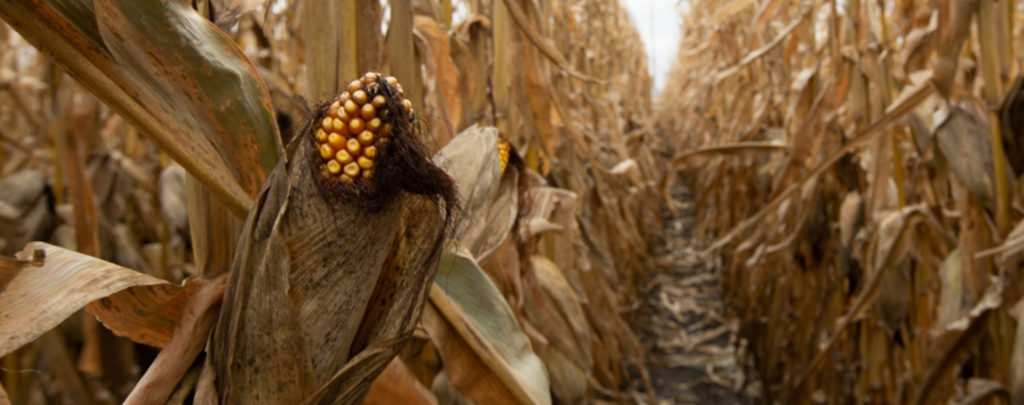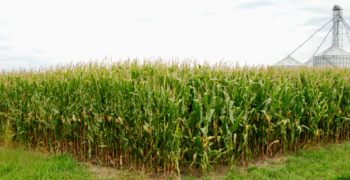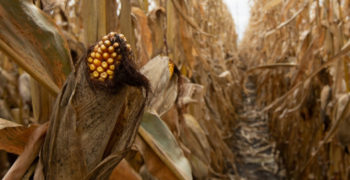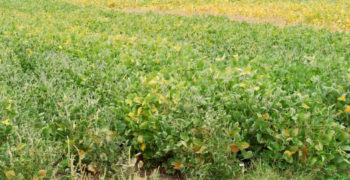Diversity of yield trials key to identifying hybrids with optimal stalk strength
Corn stalk strength is the foundation of any successful crop, both literally and figuratively. And it’s a key consideration in selecting the right corn hybrids for your farm.
Stalks have a fairly simple, but critically important job: Hold the plant up from emergence to harvest. Without strong stalks, nothing else matters. And a lot of factors can influence stalk strength:
- Hybrid genetics
- Fertility
- Environmental factors
- Disease pressures
- Weather extremes
Mother Nature is the main driver of most of these factors and selecting corn hybrids with adequate stalk strength is the best way to ensure any adverse weather and other issues that stem from it won’t inevitably result in your crop lying flat on the ground.
The first way to prevent this damage is in informed hybrid selection. Different trait packages vary in key variables like stalk size and susceptibility to stalk rots and lodging, especially under stress. And the best way to evaluate all of those is through broad hybrid performance testing. Today’s corn breeding programs test hybrids in multiple locations to ensure exposure to a number of growing environments and evaluate results in the face of stressors like disease pressures, compaction, high wind events and low fertility growing conditions. There’s a singular goal: to see which hybrids can best withstand these environmental challenges.
At Champion Seed, our replicated research plot program is designed to demonstrate the corn stalk strength, ear retention, root strength and overall stress tolerance of our high-yielding hybrids. Throughout the growing season, we will visit these replicated research plots multiple times, taking note of specific performance variability when exposed to different combinations of the stressors our customers will likely face during the growing season.
Then at harvest time, we extensively examine yield and standability, ultimately rating hybrids for their ability to withstand stressors and sustain stalk strength through the year. We can then see how different combinations of bumper yield potential, standability, disease tolerance and a host of other factors will lead to well-informed hybrid selection recommendations that will perform optimally in each Champion Seed customer’s fields. We make sure every corn trait has passed all of these tests before it’s packaged in a Champion Seed corn hybrid bag.
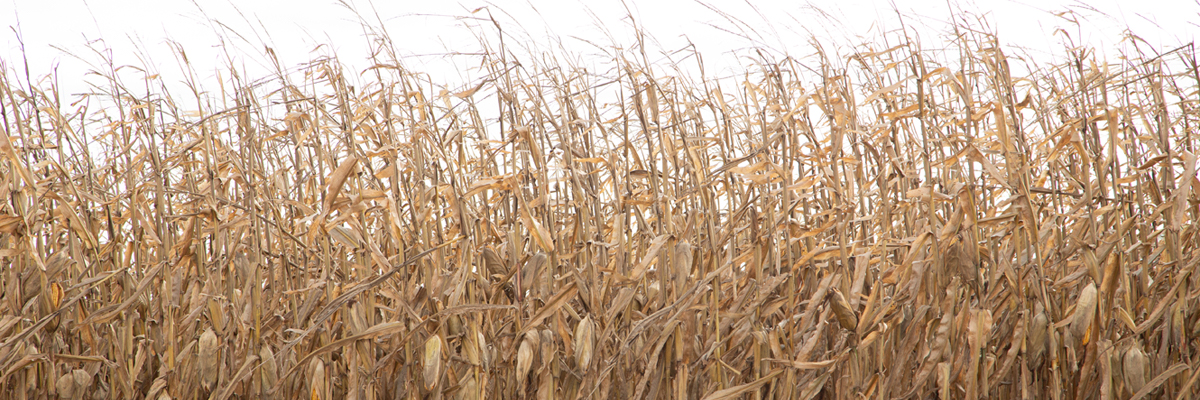
After selecting the right corn hybrid with the right balance of stalk strength and yield potential, it’s time to turn your attention to the specific environmental factors that could compromise stalk integrity before harvest. There’s a direct connection between stalk strength and fertility, the foundation of any crop’s success. Adequate nutrient availability is fundamental to the development of strong cell walls that contribute to stronger stalks. Standability issues are often created or compounded by potassium deficiencies that can be revealed by soil testing. Without sufficient nutrient levels, a corn crop won’t have the ability to reach full yield potential, build strong stalks or have the vigor to overcome disease issues during the growing season.
Some corn diseases, especially those that infect stalks, can adversely affect late-season standability and the harvestability of corn. Luckily, we have many tools to protect corn throughout its lifetime. Many diseases that become symptomatic late in the season can infect seedlings much earlier in the year. That makes a seed treatment including a fungicide like Poncho® Votivo® 500 on SmartStax® or Acceleron® 250 on VT Double PRO® crucial to establishing a consistent stand and protecting against seedling diseases. A foliar fungicide application somewhere in the VT-R1 growth stages is another way to help build plant health and protect against disease pressure that may eventually lead to stalk rot and lodging. Foliar fungicides treat and protect against Anthracnose, Fusarium and Gibberella stalk rot, common diseases that can degrade the pith of the stalk and leave the plants susceptible to stalk lodging. Such treatments ultimately help with late-season crop standability.

Finally, selecting hybrids with good stress tolerance can help prevent the stalk from becoming compromised and potentially lodging. Soil compaction, drought stress, strong wind events and saturated soils can all adversely affect late-season stalk strength and standability. Selecting corn hybrids with strong stress tolerance works as an insurance policy for less-than-ideal growing conditions. When moisture extremes plague a growing season, hybrids that are more suitable for those conditions will be less likely to cannibalize the stalk during the reproductive development stages. When environmental conditions are such that a hybrid is running out of nutrients or cannot move nutrients from the soil into the plant, the corn plant will relocate certain nutrients from the stalk to the ear to complete the grain fill process. This is known as cannibalizing the stalk and will certainly lead to downed corn.
There is no single hybrid that is perfect for every environment every year. That is why we use state-of-the-art breeding technology coupled with research plots in a range of real-life growing conditions to ensure that weak hybrids are eliminated and only the toughest hybrids with the best yield potential make it to the next round of the genetics pipeline. Then we ground-truth these hybrid selections with an extensive network of strip trials and dealer plots to pinpoint the ideal placement recommendations for every single hybrid.
Alongside root strength and yield potential, stalk strength is one of the main factors Champion Seed looks for when making corn hybrid selections. Without superior stalk strength, you can rest assured those genetics end up on the cutting room floor. Although Mother Nature is unpredictable and never gives us two identical growing seasons, Champion Seed works tirelessly to test against the toughest elements so our hybrids can handle whatever she throws our way.
(LEGAL DISCLAIMER)
B.t. products may not yet be registered in all states. Check with your seed brand representative for the registration status in your state. IMPORTANT IRM INFORMATION: RIB Complete® corn blend products do not require the planting of a structured refuge except in the Cotton-Growing Area where corn earworm is a significant pest. See the IRM/Grower Guide for additional information. Always read and follow IRM requirements. Seed containing a patented trait can only be used to plant a single commercial crop from which seed cannot be saved and replanted. SmartStax® and VT Double PRO® are trademarks of Bayer Group. Acceleron® is a trademark of Monsanto Technology LLC. Poncho® or VOTiVO® are trademarks of BASF Corporation.
